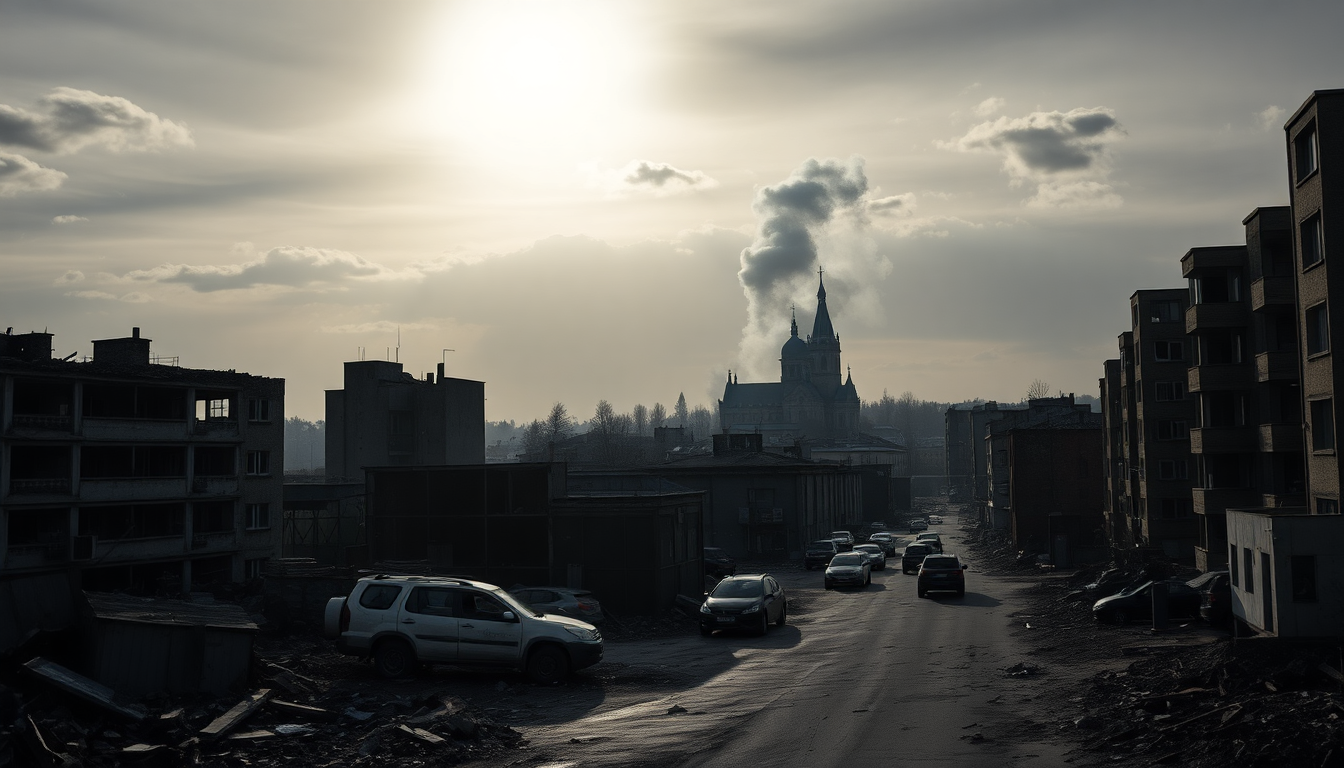Table of Contents
The ongoing conflict in Ukraine has reached new heights, especially with the recent wave of large-scale military strikes by Russia. These actions not only illustrate the current state of the war but also raise important questions about the future of international relations and the viability of peace negotiations involving major global players. As the situation develops, it’s crucial to examine the implications of these military maneuvers and how they might affect diplomatic efforts moving forward.
Recent Military Strikes and Their Aftermath
In what has been described as one of the most extensive overnight assaults since the conflict erupted, Russia launched around 614 drones, ballistic missiles, and cruise missiles across various regions in Ukraine. The aftermath was devastating, resulting in casualties, including one confirmed death and numerous injuries, alongside significant damage to civilian infrastructure. Notably, an American-owned electronics company situated near NATO borders was hit hard.
Ukrainian President Volodymyr Zelenskyy strongly condemned the attack, labeling it as part of Russia’s strategy to target civilian entities. He pointed out that this American business, which specializes in producing everyday consumer electronics, isn’t just a random target; it symbolizes foreign investment and presence in Ukraine’s economy. This raises serious concerns about the safety of international businesses operating in the region and what it could mean for foreign investments in the future. Can businesses really thrive in such an unpredictable environment?
The strike on the electronics manufacturing facility, reportedly Flex Ltd., highlights the delicate balance between military actions and civilian safety. Its closeness to NATO members like Hungary and Slovakia adds another layer of complexity, as these nations are keen to prevent any spillover effects from the conflict.
International Responses and the Future of Negotiations
The recent military escalation has triggered reactions from various international leaders, particularly in the context of ongoing peace talks. There’s a growing skepticism about Russia’s genuine willingness to engage in meaningful discussions aimed at resolving the conflict. The White House has taken a cautious approach, suggesting that these strikes might indicate President Putin’s reluctance to pursue a peaceful resolution.
Statements from NATO allies, including France, echo this sentiment, asserting that the scale of the attacks points to a lack of intent from Russia to take peace talks seriously. French officials have emphasized their commitment to supporting Ukraine and the necessity of maintaining pressure on Russia to come to the negotiating table. With the stakes so high, how can the international community effectively encourage dialogue?
As military actions continue, the prospects for a stable resolution seem increasingly fragile. The dynamics of international diplomacy are heavily swayed by these developments, and the potential for further escalation remains a pressing concern for global leaders. What will it take to find common ground and move towards peace?
Long-term Implications for Ukraine and Its Allies
The long-term consequences of these military actions go far beyond immediate casualties and infrastructure damage. They present a broader challenge for Ukraine as it strives to stabilize its economy and protect its sovereignty amid ongoing conflict. The targeting of civilian businesses not only threatens economic growth but also undermines public confidence in safety and security. How can a nation rebuild when the threat looms large?
Moreover, the international community faces a tricky balancing act, supporting Ukraine while also making diplomatic efforts to broker a ceasefire. The situation calls for a reevaluation of strategies to ensure humanitarian concerns are met, while still applying pressure on Russia to cease its aggressive actions.
In conclusion, the recent military strikes in Ukraine serve as a stark reminder of the region’s volatility and the urgent need for diplomatic solutions. As the world watches closely, the actions taken by global leaders will be critical in shaping the future of peace negotiations and the stability of international relations. Will they rise to the occasion?


